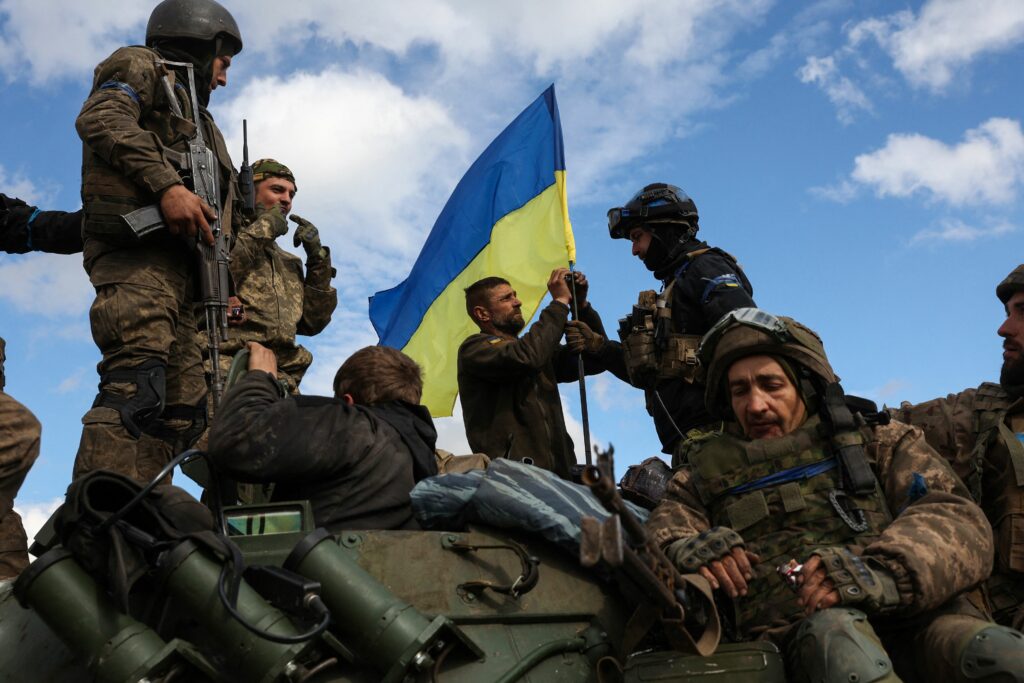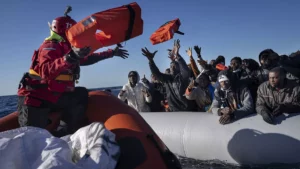The west can still save Ukraine

If European countries don’t see defeat coming, we can’t turn the wheel to avoid it
I left my meeting with a senior French officer feeling that the west is so weak it scarcely exists any more. “The West”, a longtime object of obsession for anti-westerners from Egypt’s President Nasser to Vladimir Putin, has shrivelled to a small rump of countries squabbling with each other. At times they seem willing to let Ukraine lose its war.
I share the emotional impulse to keep intoning that Ukraine will win. But Panglossian war propaganda is becoming counterproductive. We need to see a possible defeat coming so that we can turn the wheel and avoid it. We can if we want to.
I met the officer days after Emmanuel Macron suggested that Nato troops could be sent to Ukraine. As usual with France’s attempts to lead, most of its so-called allies responded by saying, in essence: “Shut up, France.”
The officer thought Macron had spoken in desperation, compelled by French pessimism about Ukraine. Westerners have grown used to the war as a background rumble that never seems to change. One day, this could stop being true. Russian troops have a firepower advantage of perhaps five-to-one over Ukrainians.
Western countries are weak firstly because they lack allies. Non-aligned states in Asia, Africa and the Gulf never cared much about Ukraine’s struggle. They have been further alienated by western double standards over Israel’s killing of 30,000 Palestinians.
If western countries support human rights in Ukraine but not in Palestine, then they don’t support human rights. Meanwhile, the US seems to be abandoning “The West” like a sinking ship leaving the rats. This goes beyond Donald Trump’s plan, as relayed by his chum Viktor Orbán, to “not give a single penny” to Ukraine if he becomes president again. Even if Trump loses and Republicans win just one chamber of Congress, they can keep blocking aid to Ukraine.
The French long dreamt of Europe running its own military affairs without the US butting in. Now the dream is coming true, and it’s terrifying. Europeans cannot even agree whether this is an existential war for them (as eastern Europeans believe), a war of choice (as western countries seem to think) or a war to ignore (Olaf Scholz of Germany’s view).
Western powers have often labelled wars existential — in Algeria, Vietnam, Afghanistan and Iraq — only to abandon them after realising they were, in fact, wars of choice. European pacifists hope Ukraine’s war will remain similarly self-contained. Perhaps Putin might stop once he’s swallowed the country. After all, western domino theories proved wrong about Vietnam, too.
So uncommitted are western states to arming Ukraine that they are treating it as a public-spending programme of choice, one you can ditch when money gets tight, like the UK’s HS2 train line. It’s not merely that our countries are disunited. France itself — the one western military with much fighting experience this past decade, albeit in the Sahel — is disunited.
A contingent of Putinist French officers still admires Russia and would rather fight what it considers the “Islamic peril” inside France. And in 2027, Putin’s longtime admirer Marine Le Pen could become French president. Putin has another military advantage over us: his willingness to sacrifice his people. Russia might have suffered more casualties taking the Ukrainian town of Avdiivka than all western European deaths in combat put together in the past 50 years.
The French officer told me apologetically: “We’re an old continent, no longer used to making war.” This is a backhanded tribute to the success of European societies. Much though western Europeans like to whine, their region may be the safest and most liveable in history. It’s the apotheosis of the humanistic project. But Putin suspects we treasure life too much to defend it.
If he wins, that wouldn’t mean a new Iron Curtain descending across Europe. It would be more like a portable cotton curtain, blown around by Russia’s will. “The West” could shrink to a thin line stretching from Britain to (if we’re lucky) Poland.
Happily, we can change course. Russia has a poorly trained army and a Canada-sized economy. “This should be feasible, easily,” says Steven Everts of the EU Institute for Security Studies. Victory would require western countries to send non-combat troops such as de-miners, trainers and vehicle engineers. Countries would need to follow Denmark in giving every shell in their cupboards to Ukraine.
Germany would have to send Taurus missiles. Replacing American support for Ukraine would cost the other Nato states about €65 per citizen per year. We could choose to let Ukraine win.
Source: Financial Times





